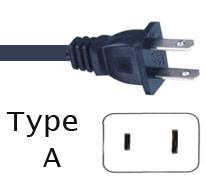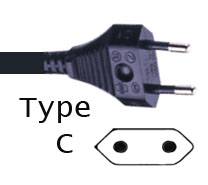The Dominican Republic, located on the island of Hispaniola in the Caribbean, is renowned for its stunning beaches, vibrant culture, and rich history. From the bustling capital of Santo Domingo, with its colonial architecture and lively atmosphere, to the serene shores of Punta Cana and the lush landscapes of the interior, the Dominican Republic offers travelers a diverse array of experiences. Whether you’re exploring historic sites, dancing to merengue music, or lounging on pristine beaches, the Dominican Republic promises an unforgettable tropical getaway.
Ultimate Dominican Republic Travel Guide
Destinations
Best time to go
The best time to visit the Dominican Republic is during the dry season, which runs from November to April. During this time, the weather is generally warm and sunny, with minimal rainfall, making it ideal for beach vacations and outdoor activities. Keep in mind that December to March is the peak tourist season, so expect higher prices and larger crowds. The wet season, from May to October, brings higher temperatures, occasional rain showers, and the possibility of hurricanes, but it also offers lower prices and fewer tourists.
Average Temperature By Month
January: 25°C (77°F)
February: 25°C (77°F)
March: 26°C (79°F)
April: 27°C (81°F)
May: 28°C (82°F)
June: 29°C (84°F)
July: 29°C (84°F)
August: 29°C (84°F)
September: 29°C (84°F)
October: 28°C (82°F)
November: 27°C (81°F)
December: 26°C (79°F)
What To Expect
Time Zone:
The Dominican Republic operates on Atlantic Standard Time (AST) year-round, which is 4 hours behind Coordinated Universal Time (UTC-4). However, the country may observe daylight saving time during certain periods of the year.
Currency:
The official currency of the Dominican Republic is the Dominican Peso (DOP). US dollars (USD) are also widely accepted, especially in tourist areas. Credit cards are commonly used at hotels, restaurants, and shops, but it's advisable to carry cash for smaller purchases and when visiting local markets and establishments.
Language:
Spanish is the official language of the Dominican Republic and is spoken by the majority of the population. English is also widely understood, particularly in tourist areas and among those working in the tourism industry.
Airport:
Las Américas International Airport (SDQ) in Santo Domingo and Punta Cana International Airport (PUJ) are the main international airports serving the Dominican Republic. Other international airports include Gregorio Luperón International Airport (POP) in Puerto Plata and Cibao International Airport (STI) in Santiago.
How To Get Around
Rental Cars: Renting a car is a popular way to explore the Dominican Republic independently, with well-maintained roads and relatively easy navigation. Several car rental agencies operate at major airports and in tourist areas.
Taxis: Taxis are readily available throughout the Dominican Republic and can be found at airports, hotels, and tourist attractions. Fares are typically fixed based on destination, but it’s advisable to confirm the fare with the driver before starting your journey.
Public Transportation: The Dominican Republic has an extensive public transportation network, including buses, guaguas (shared vans), and motoconchos (motorcycle taxis). Buses are the primary mode of long-distance travel between cities and towns, while guaguas and motoconchos are commonly used for shorter journeys and within cities.
Average Temperature By Month:
January: 25°C (77°F)
February: 25°C (77°F)
March: 26°C (79°F)
April: 27°C (81°F)
May: 28°C (82°F)
June: 29°C (84°F)
July: 29°C (84°F)
August: 29°C (84°F)
September: 29°C (84°F)
October: 28°C (82°F)
November: 27°C (81°F)
December: 26°C (79°F)
Plugs:
The standard voltage in the Dominican Republic is 110 volts AC, with a frequency of 60Hz. The most commonly used plug types are Type A (two flat parallel pins) and Type B (two flat parallel pins with a grounding pin). It's advisable to bring a universal adapter if your devices have different plug types.
VPN:
Access to certain websites and online services may be restricted in the Dominican Republic. Consider using a virtual private network (VPN) to securely access the internet and bypass any censorship restrictions.
Safety:
The Dominican Republic is generally a safe destination for travelers, but it's essential to take standard precautions to ensure your safety and well-being during your visit. Be mindful of your belongings, particularly in crowded tourist areas and when using public transportation. Avoid walking alone in isolated or poorly lit areas at night, and be cautious when withdrawing money from ATMs. Additionally, follow local laws and regulations, respect cultural customs, and be aware of your surroundings.
Credit Cards and Banks
Credit Cards:
Credit card acceptance in the Dominican Republic is widespread, especially in urban areas, tourist destinations, hotels, restaurants, and larger shops. Visa and MasterCard are the most commonly accepted cards, followed by American Express and Discover. Contactless payments, including Apple Pay and Google Pay, are also becoming increasingly popular.
ATMs:
ATMs are widely available throughout the Dominican Republic in major cities, towns, and tourist areas, allowing you to withdraw Dominican pesos (DOP) or US dollars. Santo Domingo, Punta Cana, Puerto Plata, and other popular tourist destinations have a good number of ATMs. However, it’s advisable to carry enough cash when traveling to more remote locations, as ATM availability may be limited.
Currency Exchange:
The official currency of the Dominican Republic is the Dominican peso (DOP). US dollars are widely accepted, especially in tourist areas, but it’s recommended to have Dominican pesos for transactions outside of these areas. You can exchange major foreign currencies at banks, currency exchange bureaus, and some hotels.
Banks:
Major banks in the Dominican Republic include:
- Banco de Reservas de la República Dominicana (BanReservas): The largest bank in the Dominican Republic, BanReservas offers a wide range of banking services including savings accounts, loans, and foreign exchange.
- Banco Popular Dominicano: Another prominent bank in the Dominican Republic, Banco Popular provides various banking products and services for individuals and businesses.
Traveler’s Checks:
Traveler’s checks are becoming less common worldwide, and their usage is limited in the Dominican Republic. It’s recommended to carry cash or use credit/debit cards for transactions. However, some banks may still offer services for cashing traveler’s checks.
Tips for Banking in the Dominican Republic:
- Notify your bank before traveling to the Dominican Republic to inform them of your travel plans and avoid any issues with card usage abroad.
- Keep your PIN and card information secure, and be cautious when using ATMs, especially in secluded areas or at night.
- Carry small denominations of Dominican pesos or US dollars for smaller purchases, as change may be limited.
- Familiarize yourself with the current exchange rate to ensure fair transactions when exchanging currency.
By understanding the banking system in the Dominican Republic, you can ensure a smooth and hassle-free financial experience during your travels in the country.
Locations
Dominican Republic
TRAVEL FACTS
US State Dept Travel Advisory
The US Department of State currently recommends US citizens exercise increased caution in the Dominican Republic due to crime.
https://travel.state.gov/content/travel/en/traveladvisories/traveladvisories.html
Passport/Visa Requirements
For the latest passport and visa requirements for this country, please consult the U.S. State Department’s “Learn About Your Destination” search tool, available through the link below.
US Embassy/Consulate
[1] (809) 567-7775; US Embassy in Santo Domingo, Av. Republica de Colombia # 57, Santo Domingo, Dominican Republic; https://do.usembassy.gov/; SDOAmericans@state.gov
LGBTQIA+ Travelers
Telephone Code
809
Local Emergency Phone
911
Vaccinations
The CDC and WHO recommend the following vaccinations for the Dominican Republic: hepatitis A, hepatitis B, yellow fever, typhoid, cholera, rabies, meningitis, polio, measles, mumps and rubella (MMR), Tdap (tetanus, diphtheria and pertussis), chickenpox, shingles, pneumonia. influenza, COVID-19.
Climate
Tropical maritime; little seasonal temperature variation; seasonal variation in rainfall
Currency (Code)
Dominican pesos (DOP)
Electricity/Voltage/Plug Type(s)
120 V / 60 Hz / plug types(s): A, B, C



Major Languages
Spanish
Major Religions
Evangelical, Roman Catholic, none, unspecified
Time Difference
UTC-4 (1 hour ahead of Washington, DC, during Standard Time)
Potable Water
Opt for bottled water
International Driving Permit
Suggested; additionally, if you plan to drive in the Dominican Republic, you will need an Inter-American Driving Permit issued by the AAA
Road Driving Side
Right
Tourist Destinations
Cuidad Colonial of Santo Domingo; Lake Enriquillo; Del Este National Park; Samaná Peninsula and Samaná Bay; Bahia de Las Aguilas and Jaragua National Park; Basilica of Our Lady
Major Sports
Baseball, soccer, boxing
Cultural Practices
Dominican people are generally warm, friendly, direct, and eager to speak about their families. Dominicans are expressive and speak loudly and quickly in conversation.
Tipping Guidelines
At most restaurants, a tip of 10% is expected unless service charges are pre-added. Typical bellhop tips are $1-2 (USD) per bag and $2-3 (USD) per night for housekeepers.
Souvenirs
Larimar jewelry and stones, amber jewelry, woodcarvings, pottery, baskets, limestone carvings, cigars, rum
Traditional Cuisine
La Bandera — rice, red beans, and meat
Please visit the following links to find further information about your desired destination.
World Health Organization (WHO) – To learn what vaccines and health precautions to take while visiting your destination.
US State Dept Travel Information – Overall information about foreign travel for US citizens.
To obtain an international driving permit (IDP). Only two organizations in the US issue IDPs:
American Automobile Association (AAA) and American Automobile Touring Alliance (AATA)
How to get help in an emergency?
Contact the nearest US embassy or consulate, or call one of these numbers:
from the US or Canada – 1-888-407-4747 or from Overseas – +1 202-501-4444
Central Intelligence Agency.
The World Factbook.
/the-world-factbook
(May 8, 2024)



